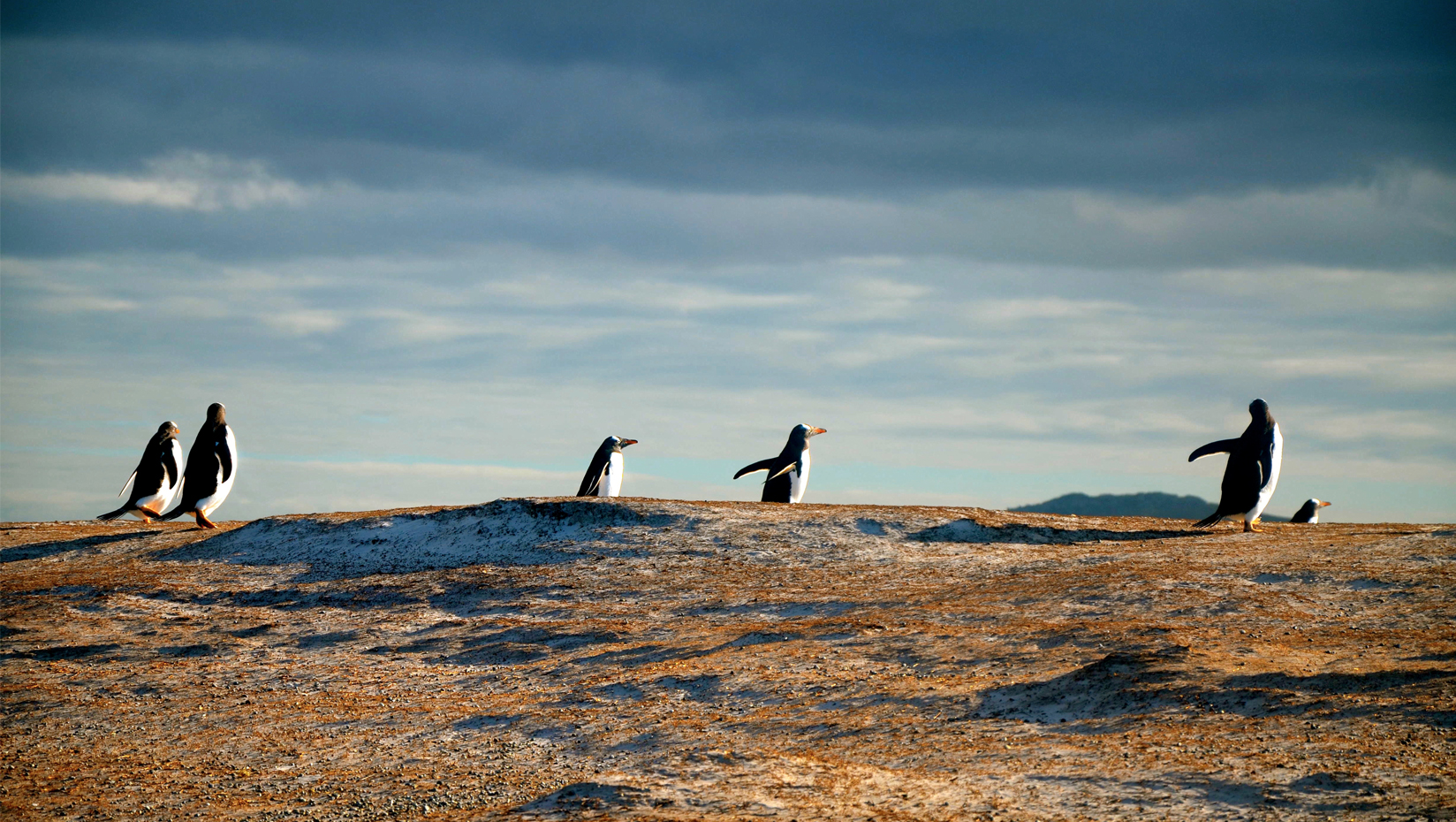
K–12 students welcome to ‘Follow a Researcher’ to Falkland Islands
For a second year, the University of Maine Cooperative Extension 4-H will connect K–12 students in Maine and around the country to UMaine researchers in the field as part of its Follow a Researcher program.
The program aims to give students a glimpse into a scientist’s world by providing live expedition updates and facilitating communication between the youth and scientist. It is offered by UMaine Extension with support from UMaine’s Climate Change Institute (CCI) and the Maine 4-H Foundation.
From Jan. 14 through Feb. 13, participants will watch as Kit Hamley, a graduate student at CCI, travels 300 miles off the southeastern coast of South America to the Falkland Islands, home to some of the world’s largest penguin, seal and seabird colonies.
Hamley, who is pursuing a master’s degree in quaternary and climate studies, is researching an extinct species of fox called the warrah. The animal was the only native terrestrial mammal in the Falklands at the time of European arrival in the 1760s, Hamley says, and the last one was hunted to extinction in 1856. Using field and laboratory techniques, she hopes to learn how and when the animal arrived in the Falklands.
Educators and students will be able to communicate with Hamley through live Twitter chats during her expedition, as well as classroom visits before and after her trip.
“Getting to share my research with kids makes my work feel more meaningful,” Hamley says. “I think part of that comes from looking at my research through their eyes. I have to be able to explain what it is I do to 7-year-olds, which means that I have to look at it from a new and different perspective and that makes it really exciting.”
In advance of the weekly question-and-answer sessions, prerecorded videos of Hamley explaining aspects of the expedition and research will be released. The videos were created to spark discussion among students and are aligned with Next Generation Science Standards.
Throughout the expedition, Hamley says she will use three disciplines: paleocology, the study of past ecosystems and their changes through time; archeology, the study of past human history of a place; and paleontology, which she will use while looking at fossilized warrah bones in order to determine what the animals ate and how long they were on the islands.
“By integrating, using and fusing these three different disciplines, I’ll really be able to begin diving into my hypothesis, which is that perhaps humans had reached the islands before Europeans got there, and perhaps just as we do today with our dogs, they decided to bring the warrah along with them and then had to leave it in the islands for whatever reason,” Hamley says.
This will be Hamley’s second research expedition to the Falklands, as well as her second experience with Follow a Researcher.
In March 2015, schoolchildren from 43 sites around the country, including 26 in Maine, participated in the program’s pilot year. Students and teachers chatted with Charles Rodda, a doctoral student at CCI, while he collected snow and ice from glaciers high in the Andes of Peru. Hamley, who was a research assistant on the trip, helped Rodda answer students’ questions.
“I knew from my experience with the FAR program in Peru that this was in a way, sort of my calling. I have always loved to teach but I also love being a scientist. This program perfectly fuses those two passions, and I knew that I wanted to be part of that,” she says.
Since November, Hamley has visited three Maine schools and one in her home state of Montana to start connecting with students ahead of her trip.
“I want the students to feel comfortable with me, and not think of me as a scientist, but as a normal person, who also does cool science,” she says. “It’s my hope that if they can connect to me, then it’ll make becoming a scientist seem more achievable for them. This is a message that I am really hoping inspires all students, and especially girls. I’m hoping that seeing a female scientist role model will inspire girls to pursue science.”
The first live Twitter chat will take place Wednesday, Jan. 6 while Hamley visits students at Hudson Elementary School; her last classroom visit before leaving Jan. 14.
For more information, to request a disability accommodation or to join the virtual expedition, contact Jessy Brainerd at 207.581.3877 or jessica.brainerd@maine.edu. More information about the program is online.
A question-and-answer with Hamley is online.
Contact: Elyse Kahl, 207.581.3747
